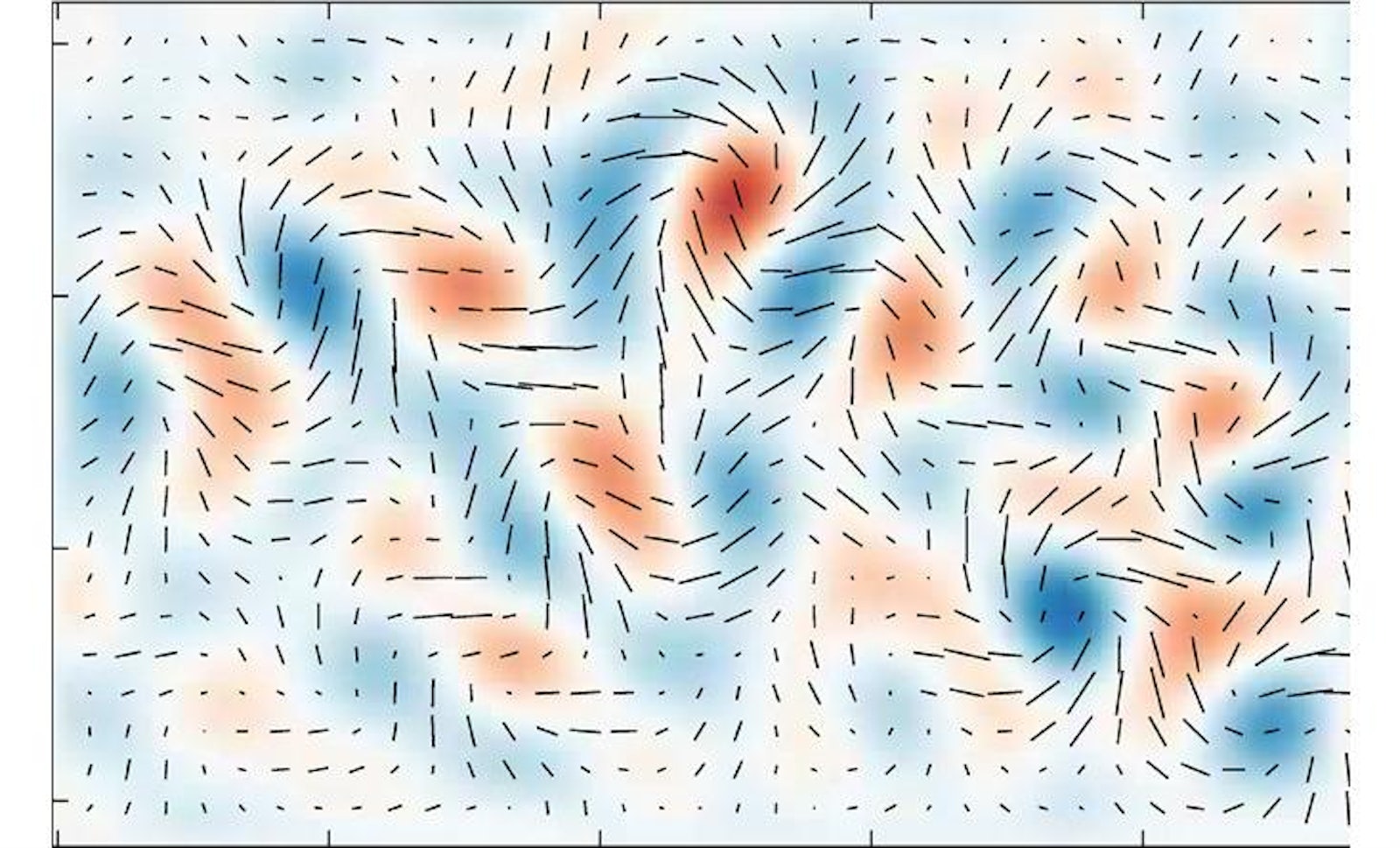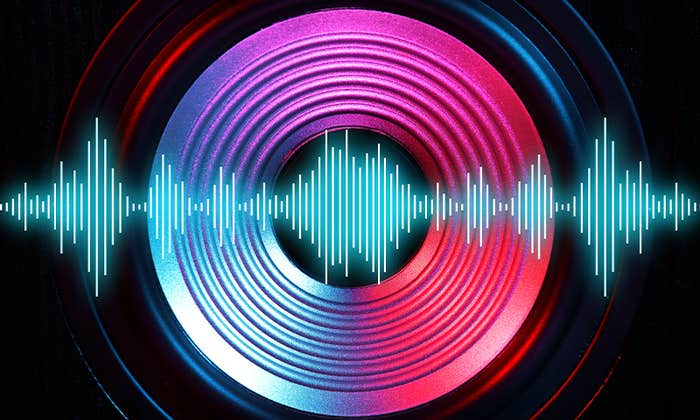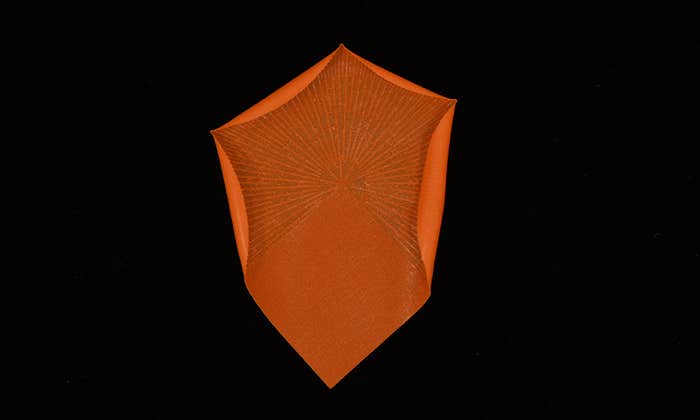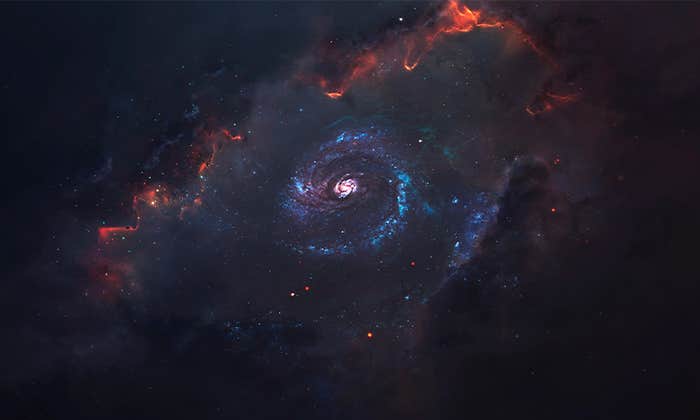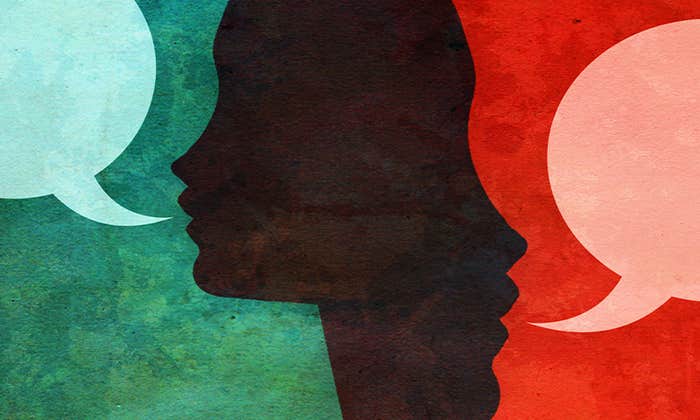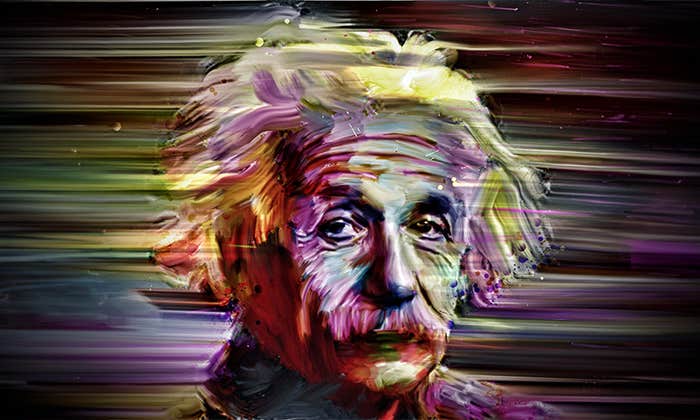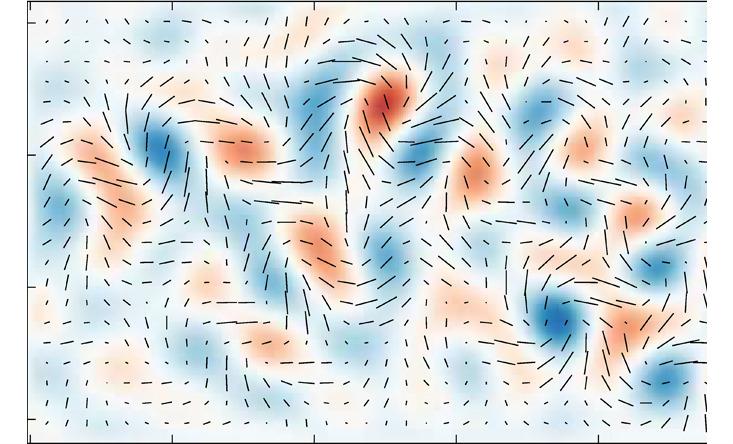
Scientists, on the whole, are a circumspect lot. When faced with a microphone or reporter’s notepad, most of them (excepting a vocal minority) hedge and temper their language, adding provisos and qualifications, burying significant news behind accurate but unexciting jargon. So when they break out of that mold en masse and start making big claims in bold language, it’s usually a good time to listen.
This is exactly what happened yesterday after a news conference on results from BICEP2, a detector in Antarctica that measures the cosmic microwave background, an afterglow from the Universe’s early period. The team running the experiment there announced that they had turned up solid evidence of “primordial” gravitational waves that emerged when the universe was just 10-37 seconds old, compressed into a minuscule scale, with unfathomably high energies. The waves not only afford us a closer look than ever before at what happened at the moment of the birth of the Universe, but also lend strong support to inflation, a leading theory of how the Universe seems to have grown so quickly in its infancy and why it’s structured the way it is today.
In some very well-reported articles on this deservedly heavily covered event, the excitement of physicists practically leaps out. But even at this time of elation, they remind us that major announcements, even from the most careful researchers, must be exhaustively confirmed and analyzed and tested before they enter the pantheon of experimentally proven truths. The quotes below illustrate these two sides of the reaction to what may be a truly historic discovery.
The Excitement:
This is huge, as big as it gets.
—Marc Kamionkowski in The New York Times
I think that if this stays true, it will go down as one of the greatest discoveries in the history of science.
—Max Tegmark in The New York Times
The implications for this detection stagger the mind. We are measuring a signal that comes from the dawn of time.
—Jamie Bock in Quanta magazine
If confirmed, it would be one of the absolute greatest discoveries in cosmology.
—Frank Wilczek in Quanta
When I got the call, I had to ask if it was real. To me, this is bigger than the Higgs boson.
—Marc Kamionkowski in Time
If this holds, it’s huge, comparable in magnitude to the discovery of the Higgs boson. Probably even more exciting because of the surprise element.
—Adam Falkowski in his blog “Résonaances”
If it’s confirmed by other groups, it’s worth a Nobel.
—Avi Loeb in Time
It’s just amazing. You can see back to the beginning of time.
—Lawrence Krauss to the AP
In some [models of inflation], the waves are so weak they could never be detected. To see them turn up is beautiful.
—Alan Guth, one of the pioneers of inflation, in Time
Although I’m trying to be sober, it’s extremely exciting to think that we may be seeing a new relic from 10-37seconds after the Big Bang, and even more so to think that I may have had some sort of role in the advance.
—Kamionkowski in Quanta
It teaches us something crucial about how our universe began. It’s an amazing achievement that we humans, doing science systematically for just a few hundred years, can extend our understanding that far.
—Sean Carroll to CNN
We have for the first time a detection for the mythical gravity wave signal that people have been searching for so hard, for so long.
—Clem Pryke, co-author of the new study, to CNN
The Caution:
My role in this process has been to remain calm at all times. The time to celebrate, I think, will be once we have published our results and presented them to the scientific community.
—John Kovac, leader researcher of the BICEP2 group, in Nature
The BICEP result, if correct, is a spectacular and historic discovery… In fact, it all seems far too good to be true. And perhaps it is: check back after another experimental team is able to check the BICEP findings, and then we can really break out the champagne.
—Liam McAllister at The Reference Frame
If this is true, this is a moment of understanding of nature of such a magnitude that it just overwhelms and let’s just hope that it’s not a trick.
—Andrei Linde, another pioneer of inflation, to CNN
“If this holds” is the central question now. This sort of experiments is difficult and subject to pesky instrumental effects and systematic effects due to foreground emission. It’s not impossible that BICEP screwed up; in fact, experts point out some worrying aspects of the data…So I would say at this point it’s fifty-fifty.
—Adam Falkowski in his blog “Résonaances”
So we will need to wait and see before we jump up and down.
—Lawrence Krauss in The New York Times
We should be skeptical. Alone this finding is tantalizing, but not definitive.
—Lawrence Krauss in Wired
Amos Zeeberg is Nautilus’ digital editor.















